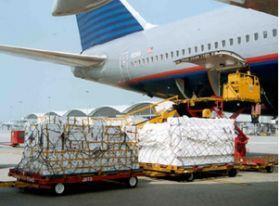
The International Air Transport Association (IATA) yesterday (31 January) announced full-year traffic data for 2012 showing a 1.5 per cent fall for cargo.
The 1.5 per cent fall in demand for air cargo compared to 2011 marked the second consecutive year of decline, following a 0.6 per cent contraction in 2011, the IATA said in a statement.
"The industry suffered a one-two punch," said Tony Tyler, IATA’s Director General and CEO. "World trade declined sharply. And the goods that were traded shifted towards bulk commodities more suited for sea shipping.
"The outstanding bright spot was the development of trade between Asia and Africa which supported strong growth for airlines based in the Middle East (14.7 per cent) and Africa (7.1 per cent),” said Tyler.
Asia-Pacific airlines – the largest players in the air cargo market – reported a 5.5 per cent decline in demand and cut capacity by 2.4 per cent following a slowdown in demand from Western markets, the IATA said.
European and North American carriers also saw falls in freight demand, of 2.9 per cent and 0.5 per cent respectively. European carriers increased its capacity by 0.3 per cent which led to the freight load factor falling to 47.2 per cent.
North American carriers managed to reduce capacity by 2 per cent, ahead of the fall in demand, but it still left the region’s freight load factor at 35 per cent, the second weakest of any region, the association said.
Latin American airlines saw freight demand decline by 1.2 per cent, but capacity grew 4.9 per cent over the year, leaving the load factor to fall to 38.3 per cent.
African and Middle Eastern carriers benefited from new trade lanes and developing trade links between the two regions. Freight demand grew 7.1 per cent and 14.7 per cent respectively, both improvements on 2011 when the Middle East expanded 8.2 per cent and Africa declined by 2.1 per cent. The Middle East had the fastest capacity expansion of any freight region (11.4 per cent) but the load factor still improved to 44.8 per cent. Africa’s freight capacity grew 9.2 per cent, outstripping demand. The freight load factor fell to just 24.7 per cent, the lowest of any region by a significant margin.
“We are entering 2013 with some guarded optimism. Business confidence is up. The Eurozone situation is more stable than it was a year-ago and the US avoided the fiscal cliff," said Tyler.
"Significant headwinds remain. There is no end in sight for high fuel prices and GDP growth is projected at just 2.3 per cent. But improved business confidence should help cargo markets to recover the lost ground from 2012. 2013 will not be a banner year for profitability, but we should see some improvement on 2012," he added.



